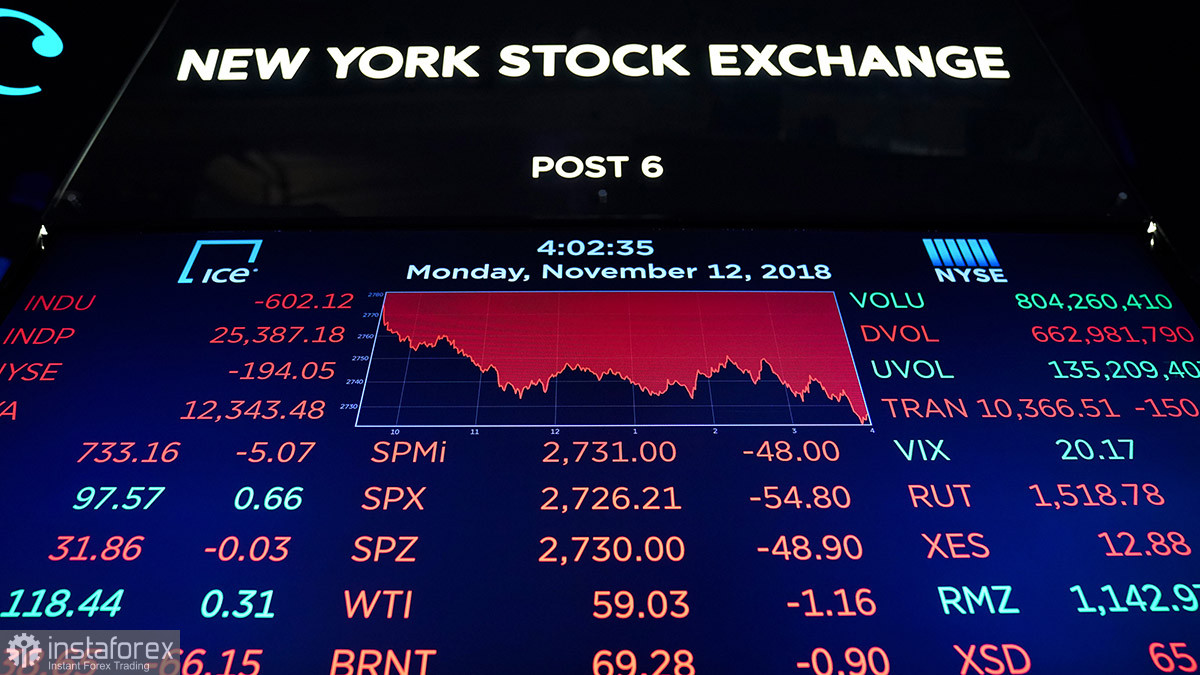
The key US stock market indices - Dow Jones, NASDAQ, and S&P 500 - ended Wednesday with a new fall. Thus, by the end of yesterday, the last two indices were already near their March lows. And this, from our point of view, is a strong signal for further decline. For example, the NASDAQ index has already adjusted by 25% in recent months, which is quite a lot for a stock instrument. Imagine how some product has fallen in price by 25%. These are not cryptocurrencies, the cost of which can fly from side to side, they are still not secured by anything and can cost as much as you want. There are very specific companies behind the shares, their assets, production, and the opportunity to make a profit. Thus, 25% is already a lot, but the decline is likely to continue in 2022. And maybe in 2023.
In principle, all the reasons that we have already listed more than once have not gone away. It is they who will continue to put pressure on the American stock market in the next year and a half. The most significant among them is an increase in the Fed's key rate, which is going to be brought to a value of 3.5% to return inflation to 2%. The second most important reason is the QT program, which is a mirror image of the QE program. Recall that the QE program meant injecting hundreds of billions of dollars into the economy through the Fed's redemption of treasury and mortgage bonds. Now the Fed will sell its bonds and thus withdraw liquidity from the economy. A banal logical chain: if the stock market grows in conditions of low rates and high QE, then in conditions of higher rates and high QT it will fall. This is exactly the scenario we are waiting for.
The geopolitical aspect here, by the way, plays a rather secondary role. If the US dollar has been growing in recent weeks and months by almost 100% due to the military conflict in Eastern Europe, then the stock market is unlikely to fall due to the same reason. Most likely, the conflict also has a certain impact on the US stock market, because it is possible to assume the flight of investors from the European stock market. But in general, we tend to believe that when the geopolitical situation worsens, investors tend to run away from risk. And stocks have always been considered a risky asset. Therefore, now is the time for bonds and bank deposits. Many experts predict a fall not only in the stock market. In recent years, the real estate market has become very "bloated", for example. One way or another, you will have to pay for all the hundreds of billions of dollars poured into the economy out of nowhere.





















